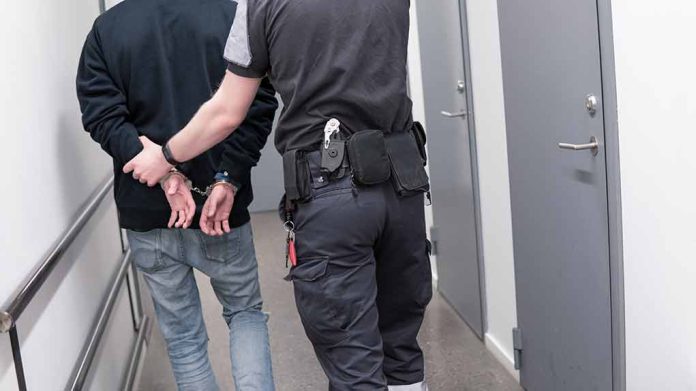
Venezuelan migrant Nolveiro Vera Ordonez chose Rikers Island over ICE custody in a desperate legal gambit that ultimately failed as federal authorities positioned themselves to take him into custody regardless of his criminal case outcome.
Key Takeaways
- Ordonez was arrested for bicycle theft in Harlem, facing charges of petit larceny, criminal possession of stolen property, and criminal mischief.
- His defense team attempted to use a $100 bail strategy to keep him in Rikers Island and away from ICE agents waiting to detain him.
- Despite New York’s sanctuary city status, Ordonez remains vulnerable to federal authorities due to his criminal charges and an existing federal warrant from Texas.
- The case highlights the intersection of criminal and immigration law that increasingly affects migrants under the Trump administration’s enforcement priorities.
- Recent ICE operations have detained dozens of illegal immigrants, signaling intensified enforcement of deportation orders.
Legal Maneuvers Fail to Shield Migrant from Federal Authorities
Nolveiro Vera Ordonez, a Venezuelan migrant accused of stealing a bicycle in Harlem, found himself caught in the increasingly rigid enforcement web of President Trump’s immigration policies. When arrested on charges of fourth-degree criminal mischief, petit larceny, and fifth-degree criminal possession of stolen property, his legal team implemented an unusual strategy – requesting to remain in Rikers Island jail rather than face waiting ICE agents.
During his arraignment, Ordonez’s attorney, Elizabeth Fischer, cited a bail law allowing defendants to request bail “voluntarily,” which was granted by Judge Rachel Pauley at $100. This legal maneuver temporarily blocked ICE agents who had been waiting at the courthouse, forcing them to leave without their target. However, the victory proved hollow as Ordonez was remanded on a federal warrant from Texas for allegedly crossing the US-Mexico border illegally in 2022.
“It is an indefinite hold,” stated Judge Rachel Pauley during the proceedings, acknowledging the unusual circumstances of the case.
Sanctuary City Protections Fail Against Criminal Charges
Despite New York City’s designation as a sanctuary city, the protections afforded to immigrants facing civil immigration matters do not extend to those with criminal cases. This critical distinction has left Ordonez vulnerable to federal intervention regardless of his local criminal case outcome. If he posts bail for his theft charges, he will immediately be released to federal custody for arraignment on the separate federal warrant, creating an inescapable legal trap.
“The judge did her job and followed the law,” explained Al Baker, a spokesperson for the Legal Aid Society which represents Ordonez.
Immigration experts note that Ordonez’s preference for Rikers Island over ICE detention has a strategic rationale. Immigration detention facilities offer fewer rights and protections than local jails, making them a dreaded destination for migrants facing potential deportation. As immigration attorney Cuccia observed, “Immigration jails are kind of a black hole. Once you get in there, you can be stuck there for a very long time.” This calculus has driven some migrants to prefer local criminal justice systems over federal immigration custody.
Broader Crackdown on Illegal Immigration Under Trump Administration
Ordonez’s case unfolds against the backdrop of intensified immigration enforcement nationwide. President Trump has directed ICE to immediately arrest illegal migrants who receive deportation orders from judges, resulting in significant increases in detention operations. Recent roundups included at least four illegal immigrants detained during scheduled appointments with Homeland Security’s Intensive Supervision Appearance Program, 10 migrants at the federal immigration courthouse, and 16 from a nearby office building.
“Anything that brings negative attention to you from immigration is very risky, because it could lead to them deciding to detain you,” warned Sarah Vendzules, a staff attorney with the Immigration Law Unit at the Legal Aid Society.
Adding to migrants’ concerns, the NYPD has recently begun issuing criminal summonses for cycling traffic violations, primarily affecting immigrant delivery workers. These “pink summonses” require court appearances, with missed appearances leading to arrest warrants. This policy shift has alarmed immigrant advocacy groups who note that even minor brushes with the criminal justice system can now lead to deportation proceedings, particularly affecting vulnerable delivery workers who lack employee protections from app-based companies like UberEats and GrubHub.



